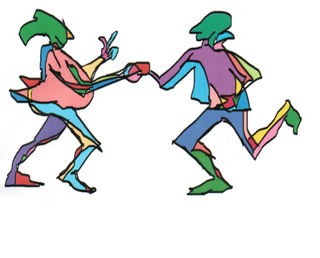Neuroscience
Is Violence Inevitable?
Or is it the inevitable outcome of a separate self society?
Posted June 19, 2019 Reviewed by Gary Drevitch
Again. A mass shooting claimed the lives of 12 people in Virginia Beach just after Memorial Day. Again. In a synagogue in Pittsburgh, hatred shattered lives, broke hearts, and fanned the flames of fear. Again. Students in southern California were slaughtered. Again. A gun ended lives.
Gun violence is an issue that is personal to me, having lost a family member in a random, senseless shooting when I was a teen. Since then, sensible gun control has seemed obvious to me. However, this post is not about gun control. At this point, the threat metastasizing throughout our country feels bigger and more primal than a fight over Second Amendment rights. I fear that it is the inevitable outcome of a culture that pits people against each other for social status and the right to belong. I believe it is the outcome of black-and-white thinking in which winning and losing leaves the ball fields and sports arenas and enters churches and synagogues, schools and homes with life and death consequences.

Early in my career, I remember hearing a quote by SIgmund Freud – “Protection against stimuli is more important than reception of stimuli." Freud’s statement captured a psychological theory of drive and aggression that reduces human beings to their basest protective instincts. Unfortunately, drive theory is still at the core of the belief that a person's behavioral decisions and actions are based on satisfying and fighting for his individual needs. This mythical aggressive drive fuels the relentless competition that sits at the core of society building in America. The illusion of the separate, autonomous self continues to be promoted despite recent research that giving to others and cooperating in groups are powerful stimulators of dopamine, a life-sustaining and mood-enhancing neurotransmitter. The belief that people should be able to “stand on their own two feet” is killing us. (Research consistently shows that people who are alone or isolated actually die from all causes at much higher rates than people who are well connected and have others to rely on.) And I believe it is contributing to us killing each other.
The rhetoric between disparate groups in the United States is filled with the language of power over others and a preoccupation with winning and losing. One recent example was President Trump’s comment in the aftermath of the Kavanaugh hearing–that what matters is that “we won." Viewing human interactions through a lens of winning and losing is profoundly distorting and ignorant of the complexity of real human experience. Stratifying individuals and groups of people into winners and losers, into us and them, is extremely destructive: It plays on our worst protective instincts. When you see another person as not like you or as an “other," your brain switches the neural circuitry used to understand and take in information about that person or group. If you accept someone as part of your tribe, your mirror neuron system is automatically activated allowing you to literally “feel” and know them by internally mimicking them. When you are part of my tribe (an entirely subjective delineation, for the record), this mirror neuron stimulation allows me to feel your pain, your joy, your anger, and your hurt as if it is happening to me, both psychologically and physically. But when I see you as an “other,” my mirror neuron system shuts down and I automatically filter my experience of you through a more distant mechanism–the dorsal medial prefrontal cortex, a pathway designed to understand through abstract thinking. Essentially, this allows the floodgates of bias and distorted cultural messages to flow freely in my brain. I no longer “feel” you intuitively.
Neuroplasticity, the ability of our brains to grow and change depending on what stimuli we feed it is crucial to the discussion of how to stop the rampant killing in this country and is essential in healing the vast divide between “us and them." Each of us can change how we act and react to others. This is not just about learning to be nice, kind, and respectful, though I think all of these qualities are needed to reverse our current destructive course. This is also about realizing that we are all in peril in a system that pits each of us against one another. To harness the power of neuroplasticity to pull us off the fatal ledge we must begin to identify what we are feeding our nervous systems. The chronic diet of fear, threat and social exclusion directly stimulates the sympathetic nervous system, further building the reactivity of the fight-or-flight system. The chronic stratification of groups of human beings stimulates everyone’s sympathetic nervous system, creating warriors fighting for their lives.
I have to admit that in my more exhausted or fed-up days I find myself stratifying my own compassion and caring. In my mental hierarchy, white men sit at the bottom of the list and marginalized groups at the top. But if I take a step back I can see this pattern as neurologically and relationally lazy. It feeds my nervous system the same threatening, dichotomous stimuli that keeps me angry and activated and does not allow me to see the many who are allies in the struggle to heal the divisions in our country.
Aggression and violence are not inevitable. But they may be the inevitable outcomes of a society that values competition over cooperation, stratifies differences into us and them, and pits individuals and groups against one another for limited resources. It just might be the malignant root of the current epidemic of mass shootings.


